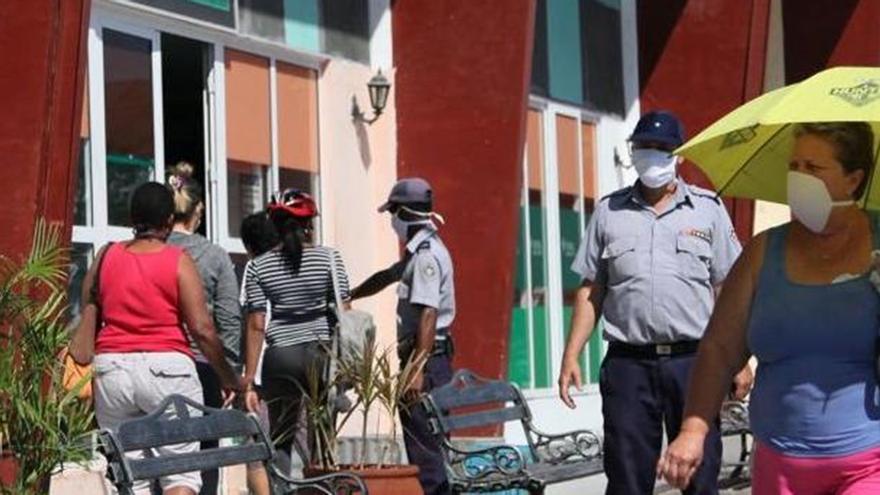
![]() 14ymedio, Havana, 17 June 2021 — A network of “60 home warehouse” engaged in “illicit economic activity” was “dismantled” by the police in Sancti Spíritus, the local newspaper Escambray reported on Tuesday. The actions of the authorities took place, according to the official media, after more than 1,050 complaints concentrated mainly in the provincial capital and the municipalities of Trinidad, Cabaiguán and Jatibonico.
14ymedio, Havana, 17 June 2021 — A network of “60 home warehouse” engaged in “illicit economic activity” was “dismantled” by the police in Sancti Spíritus, the local newspaper Escambray reported on Tuesday. The actions of the authorities took place, according to the official media, after more than 1,050 complaints concentrated mainly in the provincial capital and the municipalities of Trinidad, Cabaiguán and Jatibonico.
After the investigations, between the months of January to May of this year, they also dismantled 19 illegal factories in which rum, soft drinks, sweets, tobacco and bread were made and three workshops that did not have the authorization to dedicate themselves to sheet metal and painting.
The main crimes that the authorities identified, in addition to illicit economic activity, were “hoarding, violation of consumer protection regulations and currency trafficking,” but they did not specify how many people have been charged after the police operations.
In the dismantling of the criminal network of home warehouses, the police seized “agricultural products, fruits, corn, rice, meat,” and a “considerable numbers of toiletry, cleaning and hardware articles.”
In the 187 operations carried out, official seized 534,007 pounds of onions, 22,554 of tomatoes, 17,844 of rice, 2,872 of chili, 2,426 of beans, 1,814 of potatoes, 1,100 of sweet potatoes and 1,290 pounds of beef and pork. Also seized were 36,462 boxes of cigarettes and 7,828 of toiletries.
The police told Escambray that the “confrontation” they is carrying out aims to “restrict all transgressive behaviors” and crimes that affect the economy of the country and of citizens.
During the first five months of the year they also imposed 278 fines on state and private workers, who are mainly engaged in commerce, food service and the sale of agricultural products. The total amount of these penalties, established in Decree 30 that sets the pricing policy, exceeds 900,500 pesos.
At the beginning of September last year, a Cabaiguán resident was sentenced to ten months in prison for illicit economic activity within a network that sold essential items on digital platforms.
A few days later, sources from the Ministry of the Interior of Sancti Spíritus denounced on Cuban Television another illegal network dedicated to the repackaging and sale of powdered milk. Four people were arrested in the police operation, including three officials from the state dairy company Río Zaza.
In the last year in official media, with unusual frequency, the Government has published criminal acts related to the crisis in the country. In addition, it does not miss the opportunity to hold coleros* and resellers responsible for the worsening of the shortage and to issue warnings to other informal traders.
*Translator’s note: From the word “cola,” for “line,” coleros are people paid by others to stand in line for them.
____________
COLLABORATE WITH OUR WORK: The 14ymedio team is committed to practicing serious journalism that reflects Cuba’s reality in all its depth. Thank you for joining us on this long journey. We invite you to continue supporting us by becoming a member of 14ymedio now. Together we can continue transforming journalism in Cuba.
